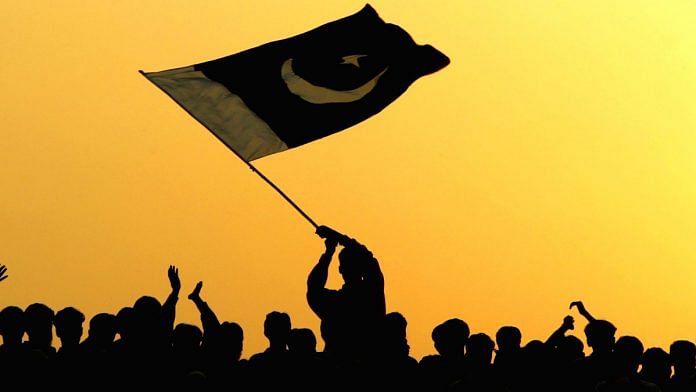This article first appeared on Radio Free Europe Radio Liberty Gandhara
Pakistan’s leading rights watchdog says it has documented the “unprecedented level” to which the freedom of expression and press freedom has shrunk in the country.
In its annual report documenting rights abuses in the predominantly Muslim country of 207 million people, the nongovernmental Human Rights Commission of Pakistan (HRCP) revealed a startling decrease in individual and collective freedom of expression in 2018.
“Media coverage was severely inhibited amid a climate of intimidation and fear, most specifically in reporting on abuses by government security and intelligence agencies as well as militants,” the report noted.
According to the HRCP, Pakistani media companies were pressured by officials to avoid covering certain issues while journalists were intimidated into self-censorship as authorities punished violators of such bans by blocking television networks and the distribution of newspapers.
“Overt repression was attributed to national security concerns,” the report said. “In most cases, however, the incidences of interference and intimidation by state and non-state actors received no official acknowledgment and there was a complete absence of efforts to hold anyone accountable.”
The report documented an alarming trend of threats to freedom of expression. These include the naming of journalist Cyril Almeida in a treason case along with former Pakistani Prime Ministers Nawaz Sharif and Shahid Khaqan Abbasi for interviewing them. Almeida faced an arrest warrant and a ban on traveling abroad, which were later revoked.
“The media were reportedly also pressured into firing certain employees who were deemed too critical of the Pakistani [security] establishment,” the report said. “Prime-time news [television] show hosts Talat Hussain, Murtaza Solangi, Matiullah Jan, and Nusrat Javed either quit or lost their jobs.”
HRCP says protests and movements demanding security, rights, or accountably of officials faced censorship of their coverage.
“The most commonly tabooed subjects cited were: missing persons, the Pashtun Tahafuz Movement (PTM), Baloch separatists, and rights activists,” the report said, citing a survey the HRCP conducted to gauge how officials control and influence the coverage of Pakistani news media.
The report says journalists in the country’s print and broadcast media routinely receive advice from Pakistani civilian and military bureaucrats responsible for public relations.
“In some cases, state or intelligence agencies approached channel or newspaper owners directly, threatening their channel/publication or parent business with NAB or FIA cases or suspension of advertisements unless they agreed to abide by certain conditions,” report said citing the National Accountability Bureau and the Federal Investigation Agency by their acronyms.
But last year Asif Ghafoor, a spokesman for the military, rejected imposing curbs on the media.
“We have never told any journalist or media owner what to say and what not to,” he told journalists in June. “We have always told them that Pakistan needs to unite, and we need to bring forward its strengths and success. I thank the media for their willing cooperation.”
Pakistan is considered one of the most dangerous countries for journalists. According to the global media watchdog the Committee to Protect Journalists, 68 journalists have been killed in Pakistan since 1992. Pakistani journalists face censorship, beatings, threats, disappearances, and illegal confinements.
In an ominous sign of the threats faced by journalists, the HRCP says that even the editor of its annual State of Human Rights in 2017 report faced an armed raid thinly disguised as a burglary.
“In the hour-long visitation, her phones, laptop, and hard drives were removed, and documents inspected,” the report said. “She was questioned on her personal and professional status, including her religion, caste, and who was paying her.”
HRCP says that while some jewelry and cash were taken, the police admitted it was no ordinary burglary and she was advised against filing a complaint.
“An investigation never materialized and formal letters written to the authorities went unacknowledged,” the report noted.
“Copyright (c) 2019. RFE/RL, Inc. Reprinted with the permission of Radio Free Europe/Radio Liberty, 1201 Connecticut Ave NW, Ste 400, Washington DC 20036.”



